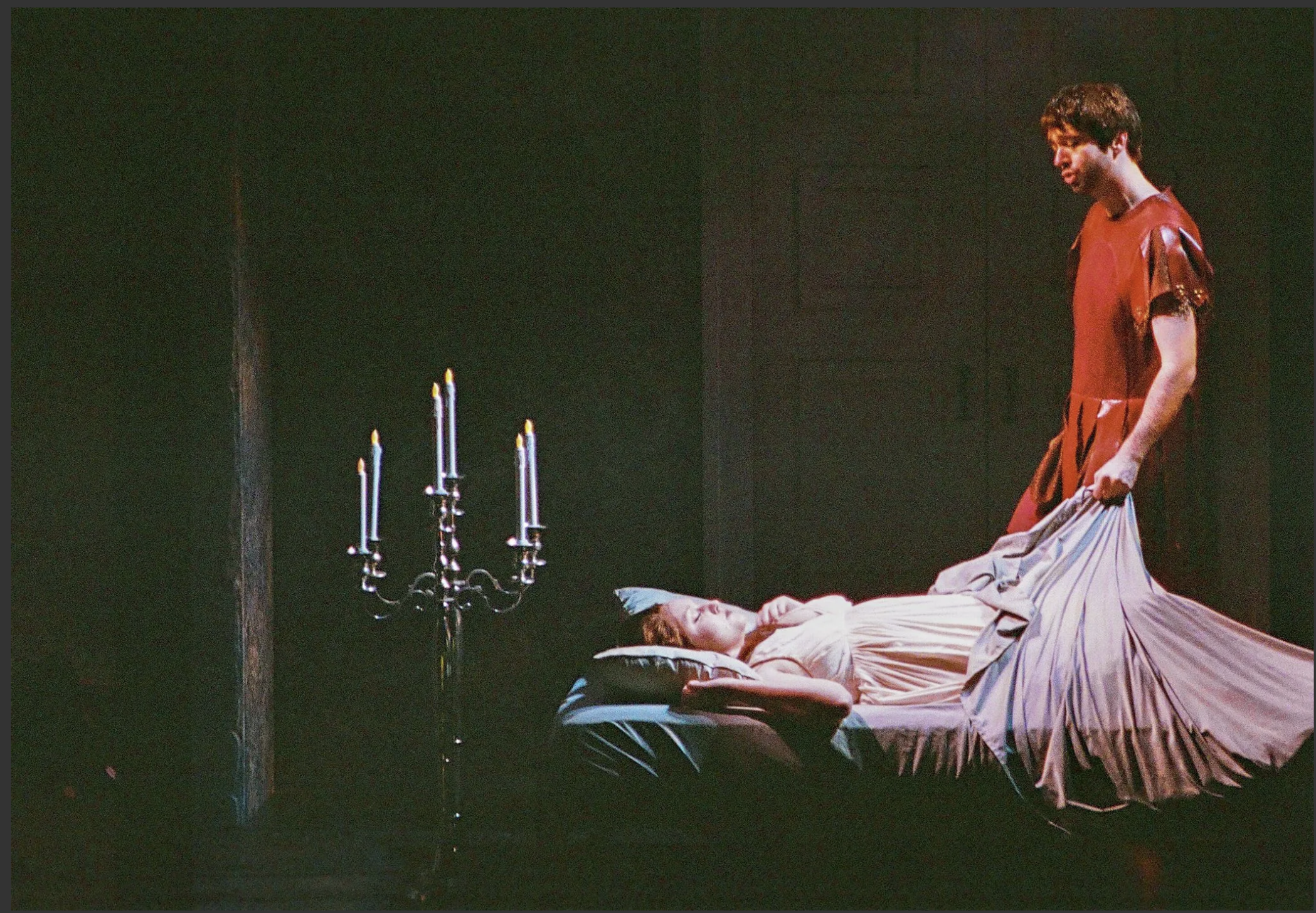
DAL continues her musical education with this stunning chamber opera at the Academy of Vocal Arts.
It beings with a bunch of recognizable types: drunken frat boys. These generals gather to complain about their unfaithful wives—every one of whom has been caught in infidelity during surprise visits home from the battlefield. Only Collatinus (Cumhur Gorgon) knows his wife is chaste. Egged on my Junius (Geoffrey Schmelzer, who has a tendency to overact), Tarquinius (Kevin Godinez) the arrogant Prince of Rome, takes this as a challenge and rides off to Collatinus’s palace where he will rape the beautiful sleeping Lucretia (Alla Yarosh). Rather than owning up to his guilt and his lust, Tarquinius insists that it is the fault of her beauty.
If the contemporary relevance of blame-the-victim mentality isn’t already apparent, Benjamin Britten’s chamber opera frames the ancient story with two modern day college students (Luke Norvell and Veronica Richer) working in a library where they discover the tale of the Rape of Lucretia. They function as a Greek chorus, watching and commenting on the events, intrigued and horrified as they open the curtain on the past, growing more and more involved in the plot and more and more invested in the characters. The breaking of the fourth wall by the Male Chorus is a great theatrical moment as he crosses into the scene and brings Lucretia’s handmaids flowers.
These are all big roles requiring lots of acting—sex and death— as well as singing, and these young singers are impressive start to finish. The somewhat goofy libretto (Ronald Duncan) is based on a play by Andre Obey which tries (and fails) to resolve all this vile behavior with Christian prayer.
Britten’s music, under the baton of Robert Kahn, is filled with fierce jagged edges and lovely lyrical passages and shocking silences used to great effect, especially at the end. When Lucretia confesses to her husband that she has been violated, she drops her voice to the lowest range of her fine mezzo-soprano and sings a cappella. Throughout the piece, the music often goes its own way, and the voices theirs, making for an evening of surprise.
[Academy of Vocal Arts, 1920 Spruce Street] February 17-24, 2024; avaopera.org
